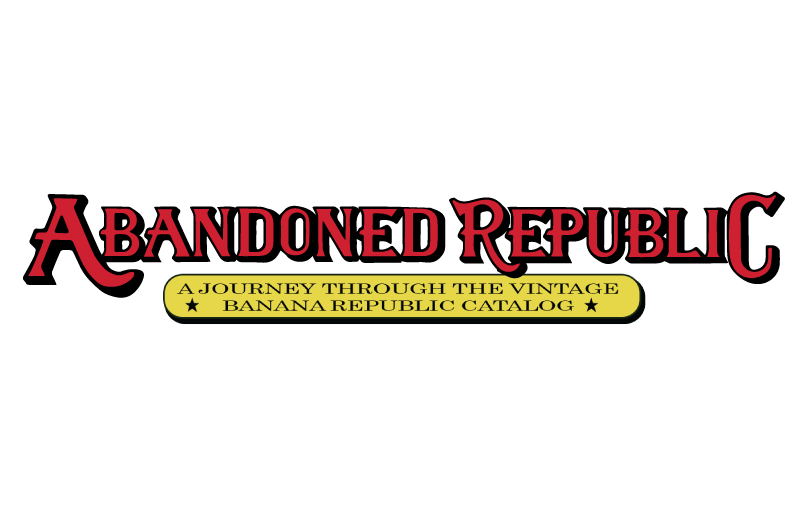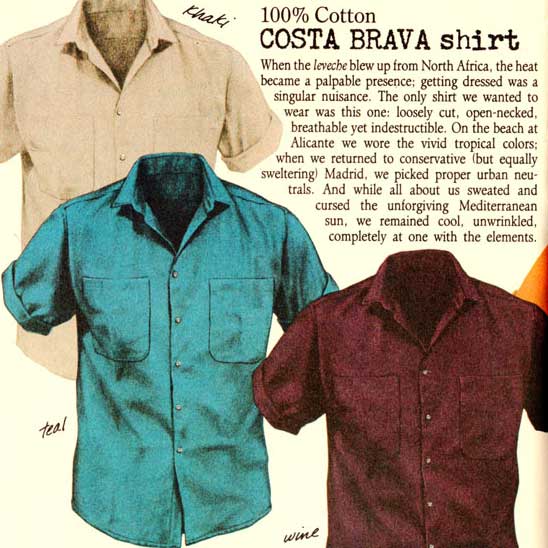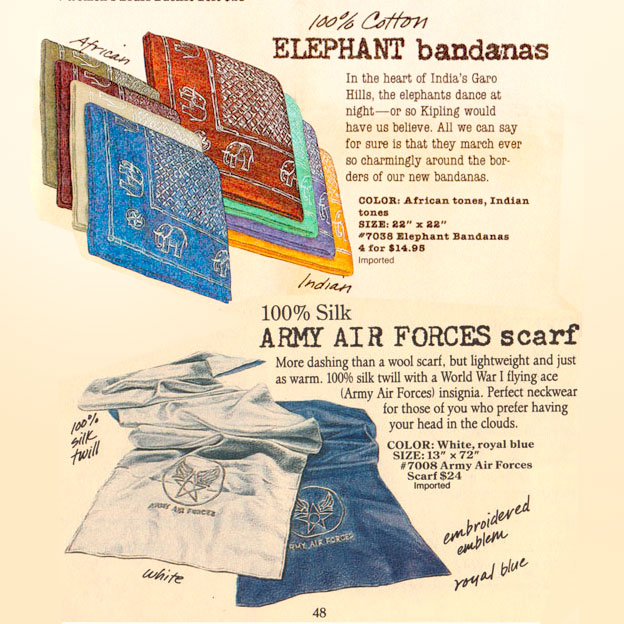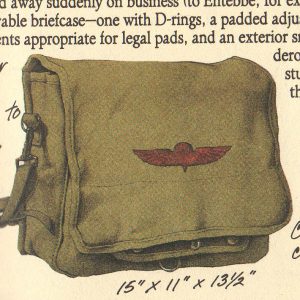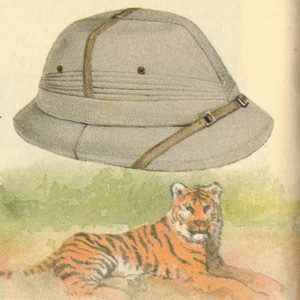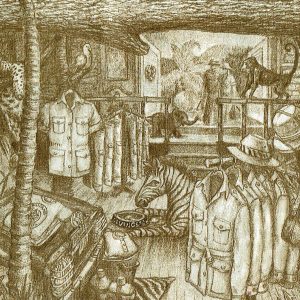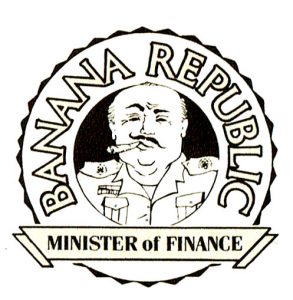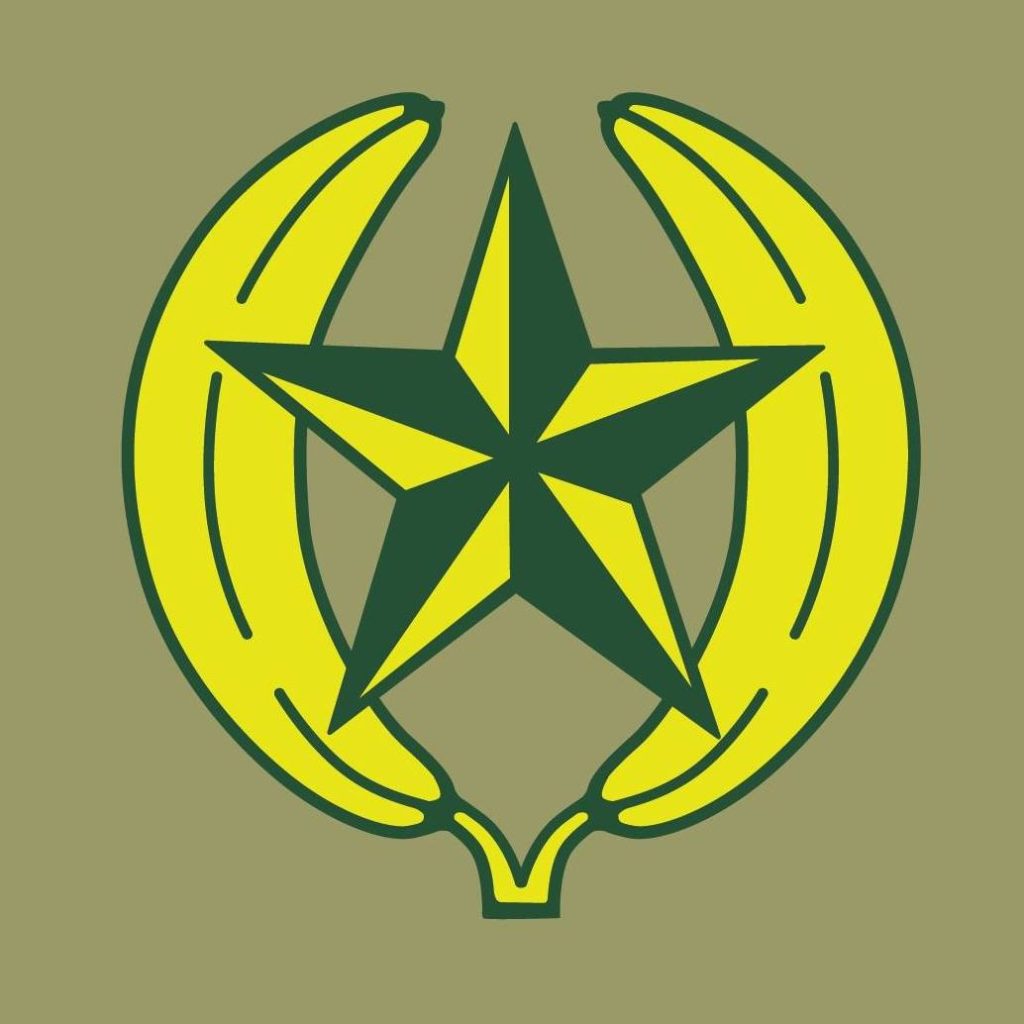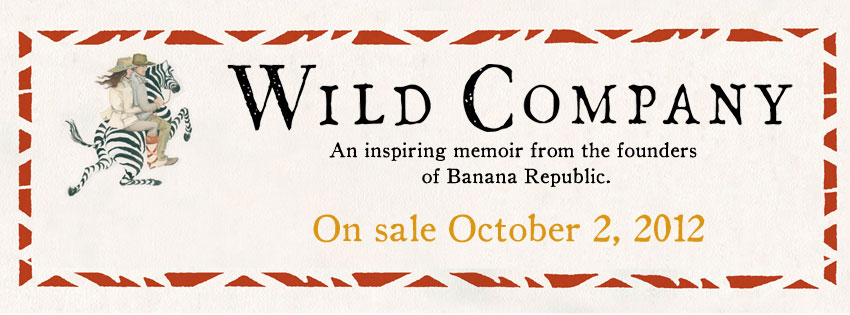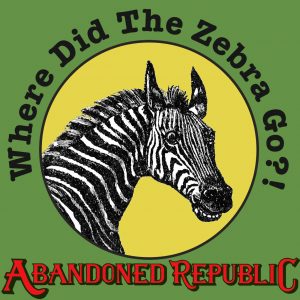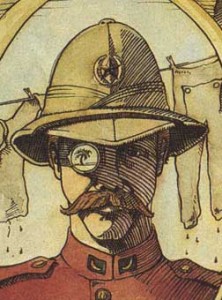Welcome to Abandoned Republic.
In 1988, the wildly innovative and beloved Banana Republic Travel & Safari concept was scrapped by it’s corporate masters at the Gap. This is site is a tribute and to that abandoned dream. My goal is to understand the history of the company, to present an archive of the classic 1978-1988 Banana Republic Travel & Safari Catalogue and to create a browsable reference archive of clothing and accessories for collectors and resellers. Enjoy your visit, and please feel free to contact me with questions!
Recent Dispatches From The Republic
Please Wait While Dispatches Load

Banana Republic 101:

Photo from a 1985 San Francisco Examiner Magazine article showing Patricia and Mel at their offices on Bluxhome Street in San Francisco.
The company was the brainchild of Mel Ziegler, a reporter for the San Francisco Chronicle, and his wife Patricia Gwilliam Ziegler who worked as a courtroom artist for the same paper. Inspired by a surplus Bush jacket Mel brought back from a work trip to Australia, the couple eventually left their jobs and began buying bulk surplus vintage clothing–often altering it with new buttons or elbow patches and the like–and selling them at the Marin County Flea Market. When a large purchase of Spanish military shirts turned out to have unnaturally short arms they turned disaster into fortune by concocting the fictitious story of Generalissimo Franco’s “Short Armed Paratrooper Shirts”. A catalogue soon followed with similarly creative copy written by Mel and illustrations of the clothing by Patricia.
Opening in 1978, a shop in their hometown of Mill Valley, California prospered thanks to their hard work and creative energy; but there were limits to how far they could grow: In 1983 they sold BR to Donald Fisher of the Gap who wisely insisted they remain as the heads of the company with a “hands off” agreement that promised total creative freedom. The infusion of money and manufacturing power of the Gap led to explosive growth: Lavishly decorated safari stores opened across the country, a team of writers and artists were hired to produce full color illustrated catalogues, and a flood of original clothing was designed and produced in factories across the world.
After five years of success, the fading safari trend, a stock market crash, and new upper management conspired to push the Zieglers out of their beloved company. After they left in 1988 the illustrated catalogues were discontinued, the safari look of the stores were phased out and BR became more of an American sportswear company.
It took many years of rebranding efforts to arrive at what Banana Republic is today, which is about as far from its plucky, artistic, entrepreneurial origins as possible. I highly recommend reading “Wild Company”, the inspiring memoir the Zieglers wrote in 2012 that tells their remarkable story.

